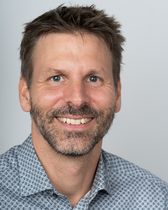Management Courses for Health Leaders and Professionals
To advance global and public health, effective management and leadership skills are crucial. Whether you are an experienced manager or an aspiring leader, our portfolio of management courses is designed to provide targeted, practical training. Our courses of the MBA in International Health Management can help you enhance your leadership skills, drive transformational change, and shape the future of health systems.
Explore Our Diverse Range of Global Health Management Courses
Our courses cover a range of topics at the intersection of leadership, management and global health. These include transformational and strategic management of people, organisations, technology and financial resources, and the analysis and design of health systems to promote better outcomes and equity. This broad portfolio ensures that you can find the ideal course to meet your needs and career goals. The majority of our management courses are tropEd accredited.
Every course can be taken as a stand-alone course. By completing multiple courses, you can easily progress to obtaining a title in International Health Management.
Gain practical insights into social marketing approaches and effective health communication strategies across traditional and digital media platforms. Equip yourself with the skills to develop compelling communication strategies that engage local communities, professionals, and key decision makers to promote behaviour change and policy adoption in support of health goals.
6 ECTS, tropEd accredited
Location Hybrid: Allschwil, Switzerland and online | Duration 1 hybrid core week and 10 weeks for assignments | More information |
Learn how to navigate the dynamic realm of healthcare technology and digital solutions, including AI. Gain an understanding of the challenges and opportunities, and acquire knowledge in selective management approaches and practices for planning and implementing information systems.
6 ECTS, tropEd accredited
Location Hybrid: Allschwil, Switzerland and online | Duration 1 hybrid core week and 10 weeks for assignments | More information |
Gain the knowledge and skills to conduct economic evaluations in resource-limited health settings, guiding decision-making and resource allocation for maximum impact and value in the healthcare sector.
6 ECTS
Location Hybrid: Allschwil, Switzerland and online | Duration 1 hybrid core week and 10 weeks for assignments | More information |
Learn how to incorporate evidence into your decision-making processes through the use of fundamental analytical skills, which involve science-informed information retrieval, analysis, and the creation and execution of small-scale, practical empirical research projects centred on particular, contextualised research queries.
4 ECTS, tropEd accredited
Location Hybrid: Allschwil, Switzerland and online | Duration 1 hybrid core week and 10 weeks for assignments | More information |
Improve your financial management skills with our comprehensive course covering budgeting, financial accounting, reporting, internal controlling and auditing.
6 ECTS
Location Hybrid: Allschwil, Switzerland and online | Duration 1 hybrid core week and 10 weeks for assignments | More information |
Gain a comprehensive understanding of international health and its management challenges in a globalised world.
6 ECTS
Location Hybrid: Allschwil, Switzerland and online | Duration 1 hybrid core week and 10 weeks for assignments | More information |
Explore key concepts of health economics and financing systems, including public goods, supply and demand, and health system performance evaluation, to critically discuss health financing and payment reforms at local, national, and global levels.
6 ECTS, tropEd accredited
Location Hybrid: Allschwil, Switzerland and online | Duration 1 hybrid core week and 10 weeks for assignments | More information |
Acquire a comprehensive understanding of the interaction between global health strategies, national and local health policies and health systems development.
6 ECTS, tropEd accredited
Location Hybrid: Allschwil, Switzerland and online | Duration 1 hybrid core week and 10 weeks for assignments | More information |
Gain an in-depth understanding of leadership in an international health context and learn what it takes to lead an organisation or work group through a change that others want to be part of.
6 ECTS, tropEd accredited
Location Allschwil, Switzerland | Duration 1 core week and 10 weeks for assignments | More information |
Get ready to manage transformational processes in different health management settings, taking into account multicultural and diverse work contexts.
6 ECTS, tropEd accredited
Location Allschwil, Switzerland | Duration 1 core week and 10 weeks for assignments | More information |
Learn how to assess the health situation in low-resource settings in order to prioritise interventions that are consistent with existing national health policies.
6 ECTS, tropEd accredited
Location Allschwil, Switzerland | Duration 1 core week and 10 weeks for assignments | More information |
Gain essential knowledge and skills in supply chain management for global health, enabling you to strengthen the supply of medical resources, address management challenges and ensure the responsible use of health commodities.
6 ECTS, tropEd accredited
Location Hybrid: Allschwil, Switzerland and online | Duration 1 hybrid core week and 10 weeks for assignments | More information |

Online Information Session
Why Choose a Management Course at Swiss TPH?
Associated with the University of Basel, Swiss TPH uniquely combines research, education and services at local, national and international levels. We are committed to providing engaging management courses that meet the dynamic needs of global health leaders.
Discover why Swiss TPH is the best place for you to complete a management course in global health:
Individualised, Innovative and Interactive Learning
Following our principle of mutual learning for change, we build on your individual experience and connect it with cases, concepts, theories and the personal expertise of our teaching faculty and students. Combining asynchronous and synchronous learning phases, we use a wide range of state-of-the-art teaching methods to ensure the best possible learning experience.
Flexible Training for Busy Professionals
Our courses are designed to meet the needs of busy, career-oriented professionals. Each course is divided into two self-paced distance-learning phases linked by a hybrid core week: five days of discussions, case studies, group work, quizzes and presentations, either on-site at the Swiss TPH's headquarters on the outskirts of Basel, Switzerland, or online from abroad.
Unlock New Career Opportunities through Networking at Swiss TPH
Our participants come from all levels and sectors of the health system. They work for UN agencies, the pharmaceutical industry, international organisations, ministries of health, hospitals and NGOs, to name but a few.
You will also have access to our dedicated alumni network, with lifelong connections and opportunities for personal and professional development, for example through our regular community events. In addition, your professional horizons will be broadened through our partnerships with prominent global organisations like the International Committee of the Red Cross (ICRC) and the Global Fund, as well as our involvement in national and international educational networks such as the Swiss School of Public Health (SSPH+), the tropEd network and the Consortium for Advanced Research Training in Africa (CARTA).
Application Process and Entry Requirements
To enrol on one of our courses, you need a bachelor’s degree and at least two years' relevant work experience, as well as a passion for global and public health. As all management courses are taught in English, strong oral and written English language skills are also required.
Please refer to the individual course pages for application deadlines and the digital application process on our website.
To attend a course, the fee must be paid before the course starts.
Frequently Asked Questions About Our MBA Courses
Each course follows our blended learning approach, offering the benefits of both self-paced and face-to-face phases.
Our management courses are typically divided into three phases:
In the distance-based preparation phase, participants familiarise themselves with the topic by studying materials and completing an assignment under the guidance of the facilitators.
This is followed by a hybrid face-to-face week, where participants engage in five days of discussions, case studies, group work, quizzes and presentations, either on-site at Swiss TPH’s headquarters in Allschwil, Switzerland, or online. Please note that some face-to-face weeks are on-site only due to the high level of social interaction in these courses.
In the self-paced post-phase, participants consolidate their learning outcomes through the development of a final assignment, supported by the course facilitators.
If you are attending a single course, you will receive a certificate of attendance upon successful completion. You can attend multiple courses or progress to the Master of Business Administration (MBA) in International Health Management.
After registering successfully, we will send you an invoice. Kindly transfer the required amount to the following account by the due date.
Students enrolled in the full MBA International Health Management programme, students enrolled in an SSPH+ Professional Postgraduate Master or PhD programme and tropEd students are eligible for a reduced course fee. Swiss TPH and the University of Basel do not offer scholarships for management courses.
Contact
We are happy to answer any questions you may have about our Management Courses. Contact us by email at courses@swisstph.ch or by phone on +41 (0)61 284 82 80. We are here to help you find the right course for you.

Christoph Pimmer
Dr. oec.
Head of Unit
+41612848685
,
*
christoph.pimmer@swisstph.ch

Barbara Maria Löfflad-Bürkin
Coordinator Teaching and Training
+41612848669
,
*
barbara.buerkin@swisstph.ch